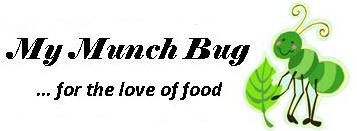Pediatric Feeding Disorders and Anxiety
Don't Feed the Monster
Do you wonder if your child’s hesitancy or even unwillingness to try new foods is because he or she is anxious to do so? Could it be that anxiety is playing a bigger role for your child? Sure, all kids can be picky, but kids with feeding issues may have extreme picky eating habits or highly selective eating.
This is your opportunity to learn about anxiety in children from one of the top experts in the field, Dr. Jonathan Dalton, founder of the Center for Anxiety and Behavioral Change (CABC) in Rockville, MD, a private treatment center dedicated to using evidence-based treatment for patients with anxiety disorders. Joined by Melanie Potock, MA, CCC-SLP, an international speaker and the author of four books on feeding children (especially the picky eater), the two professionals share advice for both parents and professionals.
According to the National Eating Disorders Association, “Children who don’t outgrow normal picky eating, or in whom picky eating is severe, appear to more likely to develop Avoidant Restrictive Intake Disorder (ARFID)” and many kids with ARFID also have a “co-occurring anxiety disorder.”
Watch as two experts share their unique knowledge of how anxiety plays a crucial role in picky and selective eating in children.
Course Presenters
Melanie Potock, MA, CCC-SLP, is an international speaker on the topic of feeding babies, toddlers and school age kids. She is the co-author of the award-winning Raising a Healthy Happy Eater: A Stage-by-Stage Guide to Setting Your Child on the Path to Adventurous Eating (2015) and Baby Self-Feeding: Solutions for Introducing Purees and Solids to Create Lifelong Healthy Eating Habits (2016). The tips in cookbook for parents & kids, Adventures in Veggieland: Help Your Kids Learn to Love Vegetables with 100 Easy Activities and Recipes (2018) are based on the latest research and Melanie’s 20 years of success as a pediatric feeding therapist. Melanie’s children’s book You are Not an Otter takes preschoolers on a food adventure, exploring all the ways that various animals eat! Melanie’s advice has been shared in a variety of television and print media, including The New York Times, The Wall Street Journal CNN.com and Parents Magazine.

Dr. Jonathan Dalton is a licensed psychologist, public speaker, and author who founded the Center for Anxiety and Behavioral Change (CABC) in Rockville, MD, which is a private treatment center dedicated to using evidence-based treatment for patients with anxiety disorders. He received his undergraduate degree in psychology from Villanova University, a master’s degree in psychology from The Catholic University of America, and a doctorate in clinical psychology from Fordham University with a specialization in child and family psychology. He completed two years of pre-doctoral training at the Johns Hopkins School of Medicine – Kennedy Krieger Institute, and advanced postdoctoral training at the Maryland Center for Anxiety Disorders at the University of Maryland. He specializes in the treatment of anxiety disorders in children and adolescents with a focus on anxiety-based school refusal.

Refunds, Extensions, and Cancellation Policy
Paid registration is valid for the specified period. No refunds are provided once the consumer has registered for the course.
Access to this course is subscription based and extensions are only possible for an additional fee.
This course includes:
- Viewing period – 30 days from day of registration
- Single registration for one viewer
- Over two hours of expert instruction from two of the nation’s experts on discussing anxious eaters!
- Copies of important Power Point slides and resource list
Class Agenda (2 hours and 30 minutes)
- Introductions and Overview – 10 minutes
- Understanding the Spectrum of Picky Eating – 10 minutes
- Understanding Pediatric Anxiety Disorders & Avoidance – 90 minutes
- Cognitive Behavioral Treatment & Exposure Therapy – 10 minutes
- First-step Strategies – 30 minutes
Parents and pediatric feeding professionals will learn:
- Why do kids develop feeding disorders?
- When does anxiety (we all have it!) become a disorder in children?
- What is ARFID and what does it have to do with anxiety?
- What role does avoidance have in both feeding difficulties and anxiety disorders?
- How common are anxiety disorders in children?
- What types of anxiety disorders may be related to feeding challenges?
- What about OCD?
- How does the child’s relationship with food influence the entire family dynamic?
- How can we reduce problem behaviors?
- What are some subtle signs of anxiety that we may be missing?
- What strategies can parents and professionals implement right away?
- What words work and how do we deliver the message?
- What role does attention play and why is it so powerful?
- How do we have to parent these kids differently?
- What is considered the best evidence-based treatment for children with anxiety disorders? How is this similar to feeding therapy techniques?
- When and why should a parent or professional consider teaming with a specialist in pediatric anxiety, and who is that, and where do you find him/her?





